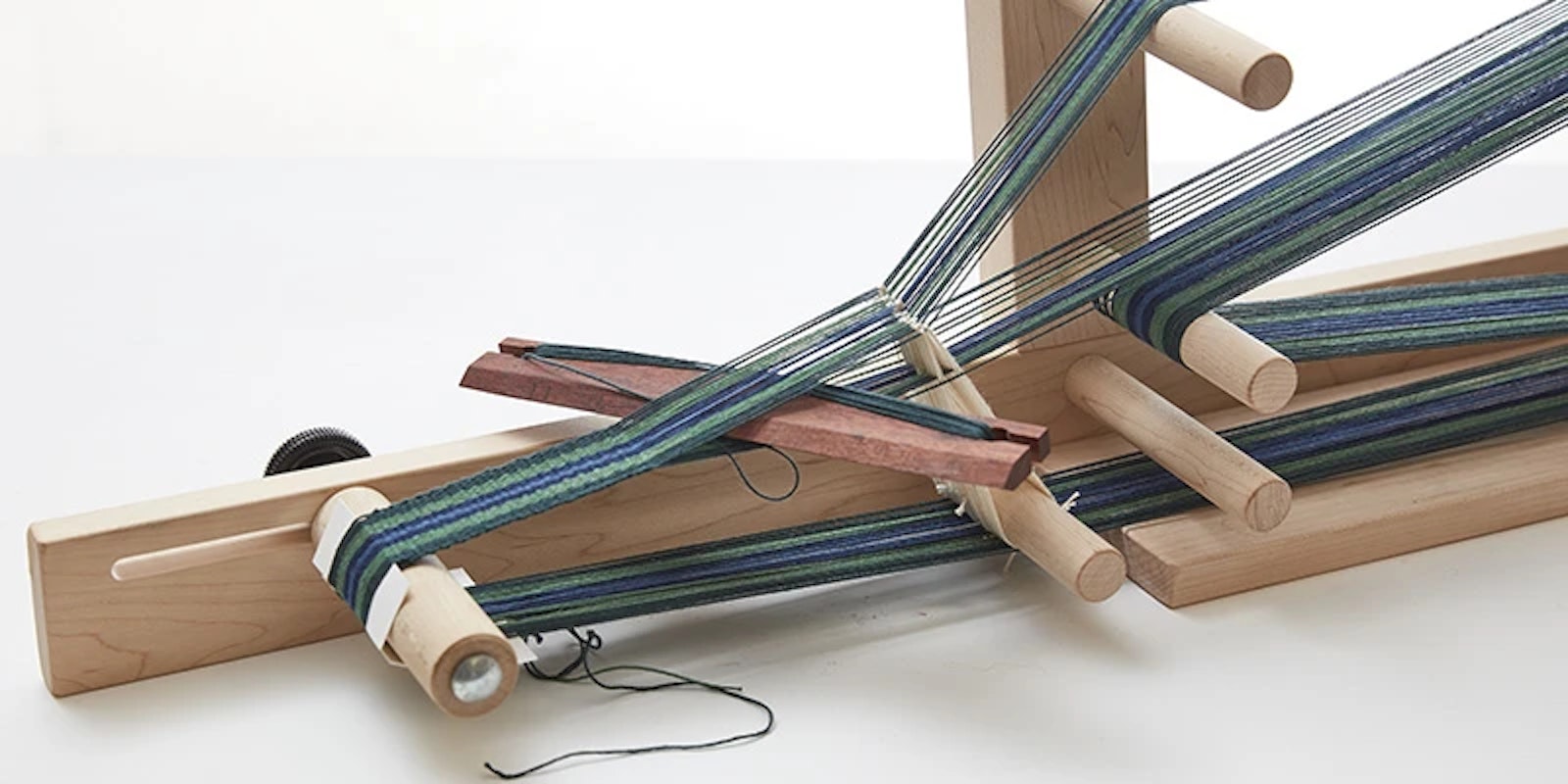We don't often think about it, but our weaving begins with earth and light: the wood for our looms and tools, the plant fibers, and the plants that feed the animals whose fiber we weave, all begin with the good land and the light of the sun. This weekend, I met a couple who live the path from light and land to loom every day in a very passionate and reverent way. Anne Merrow, the editor of our fiber eMags, and I visited Jeanne and Dan Carver, owners of the Imperial Stock Ranch in the Oregon high desert. They are not weavers, but they are deeply committed to the fiber community and to maintaining the connection from land to loom.
 |  |
| Our weaving story begins with the land. . . | |
 | |
| that feeds the sheep who grow the wool. . . | |
 | |
| that becomes the yarn that feeds the loom. |
The Imperial Stock Ranch has been in continuous operation since the 1870s. The original homesteader, R.R. Hinton, was one of the first to experiment with what would become the Columbia breed of sheep, at a time when Oregon was fifth in the United States in wool production and second in sheep. The Carvers are the third family to own the ranch, and they consider themselves stewards of the land, of the breed, and of the traditional ways of fiber production. They use natural artesian springs to provide water for stock, they are restoring streams and topsoil, and instead of traps and shotguns, they use dogs to protect their flock from predators.
Ranching is a full-time job, but the Carvers have chosen a job far larger than the ranchers of previous generations. A decade ago, domestic wool buyers began to buy overseas in order to remain competitive. To preserve their ranch and its history, the Carvers had to become educators and find new markets for their wool and other products. They began marketing their meat to Oregon restaurants, becoming part of the local food movement. They found mills and dyers to make yarn from their wool, and Jeanne connected with the fiber community and hired designers and local weavers to create garments from thier lovely Columbia yarn. Their garments have been sold through high-end companies such as Norm Thompson, and now they are selling yarn through shops and direct to weavers, knitters, and other fiber artists.
The work never stops. When the Carvers aren't seeding, haying, tending livestock, harvesting, preserving, restoring or educating, they are their own road, utility, building maintenance, fire, police, and medical departments. Dan says he savors the rare day when he can just be a ranch hand. It's a hard life, but Jeanne and Dan believe in the land, the animals, the fiber community, and the traditions they are preserving.
You'll have a chance to experience the Imperial Stock Ranch, the Carvers, their hard-working dogs, and their sweet sheep in words, slides, and video in a SpinKnit eMag coming later this year, but I wanted to share a little their story with you now. I take even greater joy in our craft as I meet the heros who help keep our traditions alive. And one of my greatest joys in being at Interweave is the chance to help connect you through our magazines, eMags, and videos with these exceptional people who, as Jeanne Carver would say, are creating "new twists on old stories." I hope you find these wider connections as enriching as I do.


